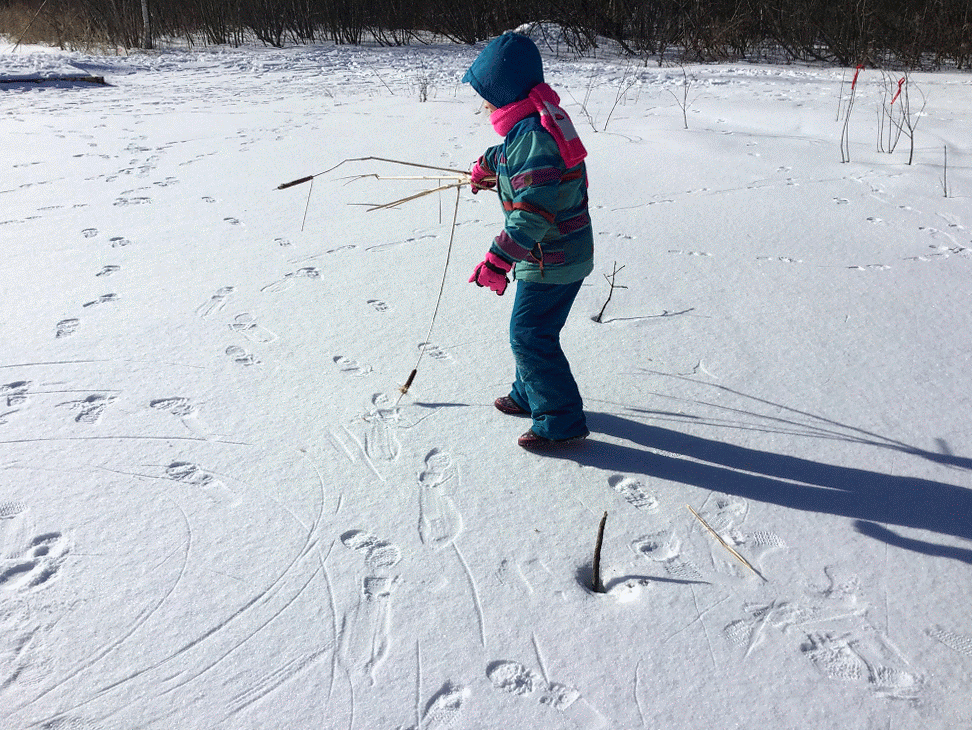in Nearby Nature

What is Place-Based Education?
Place-based education is a pedagogical approach that has been championed by educator and writer David Sobel. It connects students’ experiences to a place of importance with their learning, with the educator providing regular and repeated opportunities to explore a specific place in their community. As students explore both its natural and built features through the lens of observation and wonder, they will want to learn more about their special place. The educator will then weave a variety of subject areas to investigate in that place and encourage students to share their stories through oral storytelling, journaling or art. Students’ stories are linked to stories and existing knowledge of the place (e.g., Anishinaabe stories in the Ottawa area), helping them make even deeper connections to a place that is meaningful to them. Finally, these stories form part of the culture of the classroom, which supports the development of the students’ sense of empathy not only for the livings things that call this place home but also for the place itself.
What is Forest School?
Forest School is not so much a place, but an approach to learning that puts students in the driver’s seat. Through regular and repeated access to a woodland, students observe, explore, ask questions, build, discover, and make connections to the natural world. More than just a one-off field trip, students are provided with an opportunity to build an on-going relationship with their peers, the educators, the land, and themselves through their experiences at Forest School.
Once at Forest School, students are invited to explore the forest. At first, this type of learning may seem chaotic, but given time and space, students begin to engage in intrinsically motivated discovery. Some may be drawn to building dens, following animal tracks, identifying mushrooms, etc. At Forest School, the curriculum is emergent, flowing from what interests students. The challenge for educators is to observe students’ exploration, taking on the role of experiential learning facilitator. At the end of each session, students are invited to reflect and share their “Story of the Day”. This information serves as a jumping-off point for lesson plans back at school and for future sessions at Forest School, linking student interests to the Ontario Curriculum.
For more information about a typical day at Forest School, please click on this link: Into the Woods: Rain or Shine.
Our Adventures in Nearby Nature!
For the past several years, we took our Early French Immersion students outside and into nature at least once a week for an entire school day. Our students loved visiting our somewhat forgotten forest, just a short walk from the school.
During the 2015-2016 school year, we attended the Ottawa Forest and Nature School each and every Tuesday, rain or shine, even in -20c weather. This initiative was a pilot project with the Ottawa Carleton District School Board and part of a collaborative research project with the University of Ottawa, Faculty of Education studying the impact of nature-based learning on student achievement and well-being.
While we may teach at different schools now, we still bring our students outside and into nature. Joanne continues to visit the forest near Meadowlands PS. Jacquie and her students are exploring the forested areas around Rockcliffe Park PS. We continue to weave the Ontario Curriculum into our days spent outside, taking our cue from our students. They take the lead in their learning and we facilitate making links to the Big Ideas in the Curriculum.
Arts Lesson Plan Linked to the Ontario Curriculum
Click on the link below to view the Dance Learning Module we developed with our students for the Canada C3 Digital Classroom: Exploring the Natural Environment Through Dance
Ottawa Citizen Interview:















